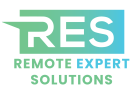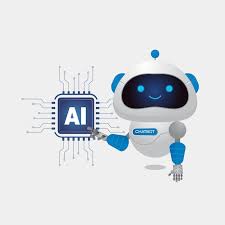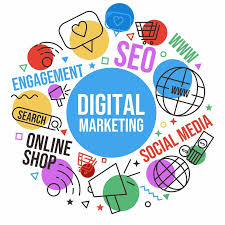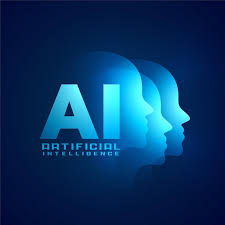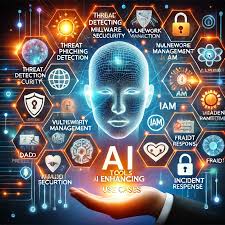The emergence of AI-powered customer support is transforming the entire customer service process across industries. Businesses—small and large—are rapidly shifting from traditional human-only service models to AI-enhanced customer interaction systems. But as we step into 2025, where both AI chatbots and human agents have evolved significantly, the question arises: Who truly wins in the future of customer service?
Let’s dive into the competitive world of AI Chatbots vs. Human Experts and see who comes out on top.
The 2025 AI Chatbot Revolution
AI chatbots in 2025 are not just answering FAQs anymore. Thanks to large language models (LLMs), machine learning (ML), and natural language processing (NLP), these bots now mimic human conversations more convincingly than ever before.
Key Advancements:
- Deep contextual understanding
- Integration with CRMs, eCommerce, and ticketing platforms
- Real-time learning and auto-optimization
- Instant, scalable, 24/7 support
AI chatbots now resolve issues faster and at lower cost, offering businesses unparalleled scalability and efficiency.
The Human Factor Is Still Relevant
Despite advancements in AI chatbots, human agents bring unmatched value through empathy, creativity, and critical thinking—qualities no machine can fully replicate.
Why Humans Still Matter:
- Handle complex and emotional cases
- Offer personalized and judgment-based responses
- Excel in sensitive industries like healthcare, finance, and legal services
An upset customer needs empathy, not just efficiency. Human agents are still essential in calming emotions and delivering nuanced support.
Performance Metrics: AI Chatbots vs. Human Agents
Here’s a side-by-side look at how each performs based on key customer service metrics:
| Metric | AI Chatbots (2025) | Human Agents |
| Availability | 24/7, across time zones | Limited to shift hours |
| Response Time | Instant (0–1 seconds) | Typically 10 seconds or more |
| Scalability | Unlimited conversations | Limited by workforce size |
| Emotional Intelligence | Improving but limited | High |
| Managing Complex Issues | Moderate | High |
| Cost per Interaction | Low | Medium to High |
| Customer Satisfaction | High (simple queries) | High (complex interactions) |
Takeaway: AI wins in speed and cost; humans win in empathy and adaptability.
The Hybrid Model: The Best of Both Worlds
Forward-thinking companies are no longer choosing between AI and humans—they’re combining both in a hybrid support model.
How Hybrid Customer Service Works:
- AI handles: FAQs, order tracking, password resets, scheduling
- Humans handle: Emotional cases, complex problems, escalations
- AI supports humans: By offering real-time suggestions, summarizing cases, and enhancing workflow
The result? A support experience that is fast, efficient, and human when it matters most.
Industry Applications in 2025
eCommerce
- AI Chatbots: Help customers find products and track orders
- Humans: Handle returns, complaints, and refund issues
Healthcare
- AI Chatbots: Schedule appointments, triage symptoms
- Humans: Provide diagnosis, treatment discussions, emotional care
Banking and Finance
- AI Chatbots: Show balances, process loan status, detect fraud
- Humans: Handle financial advising and complex disputes
IT & SaaS Support
- AI Chatbots: Solve basic troubleshooting, direct tickets
- Humans: Address system outages, critical fixes, integrations
Privacy, Trust, and Ethics in 2025
In 2025, privacy and data protection remain hot-button issues. AI chatbots must comply with evolving laws like:
- GDPR
- CCPA
- State and provincial regulations
Businesses must clearly disclose how chatbot interactions work, what data is collected, and how it’s protected. Meanwhile, human agents are still better at handling ethically sensitive or high-trust situations.
The Final Verdict: Who Wins in 2025?
So, who wins the customer service war—AI chatbots or human experts?
The Answer: The Customer Wins.
When companies combine AI’s efficiency and scalability with human empathy and adaptability, the customer enjoys the best possible experience.
In 2025, AI is a tool, not a replacement. Businesses that master the balance between bots and people will lead in customer satisfaction, cost control, and brand trust.
Frequently Asked Questions (FAQs)
Q1. Will AI chatbots substitute human agents completely in 2025?
No. While AI can manage routine tasks, human agents are essential for complex or emotional issues.
Q2. Are AI chatbots compliant and safe under data privacy law?
Yes, if implemented correctly. Most AI bots in 2025 are GDPR and CCPA compliant with strong encryption and transparency policies.
Q3. What is the best way to use both AI and human agents in customer service?
Use a hybrid model—AI for common queries and humans for unique or emotional interactions. AI can assist human reps behind the scenes.
Q4. Which industries benefit most from AI chatbots in 2025?
Industries with high-volume, 24/7 needs such as eCommerce, IT, healthcare, banking, and travel.
Q5. Do customers prefer chatbots or human support?
It depends on the issue. For fast answers, they prefer chatbots. For sensitive or frustrating issues, humans are preferred.
Conclusion
In today’s fast-paced world, customer service needs to be fast, smart, and human. AI chatbots deliver quick responses and cost savings, while human agents ensure empathy and deeper resolution. The true winners are businesses that integrate both intelligently.
Let AI handle the routine, let humans handle the real — and let customers feel the difference.
